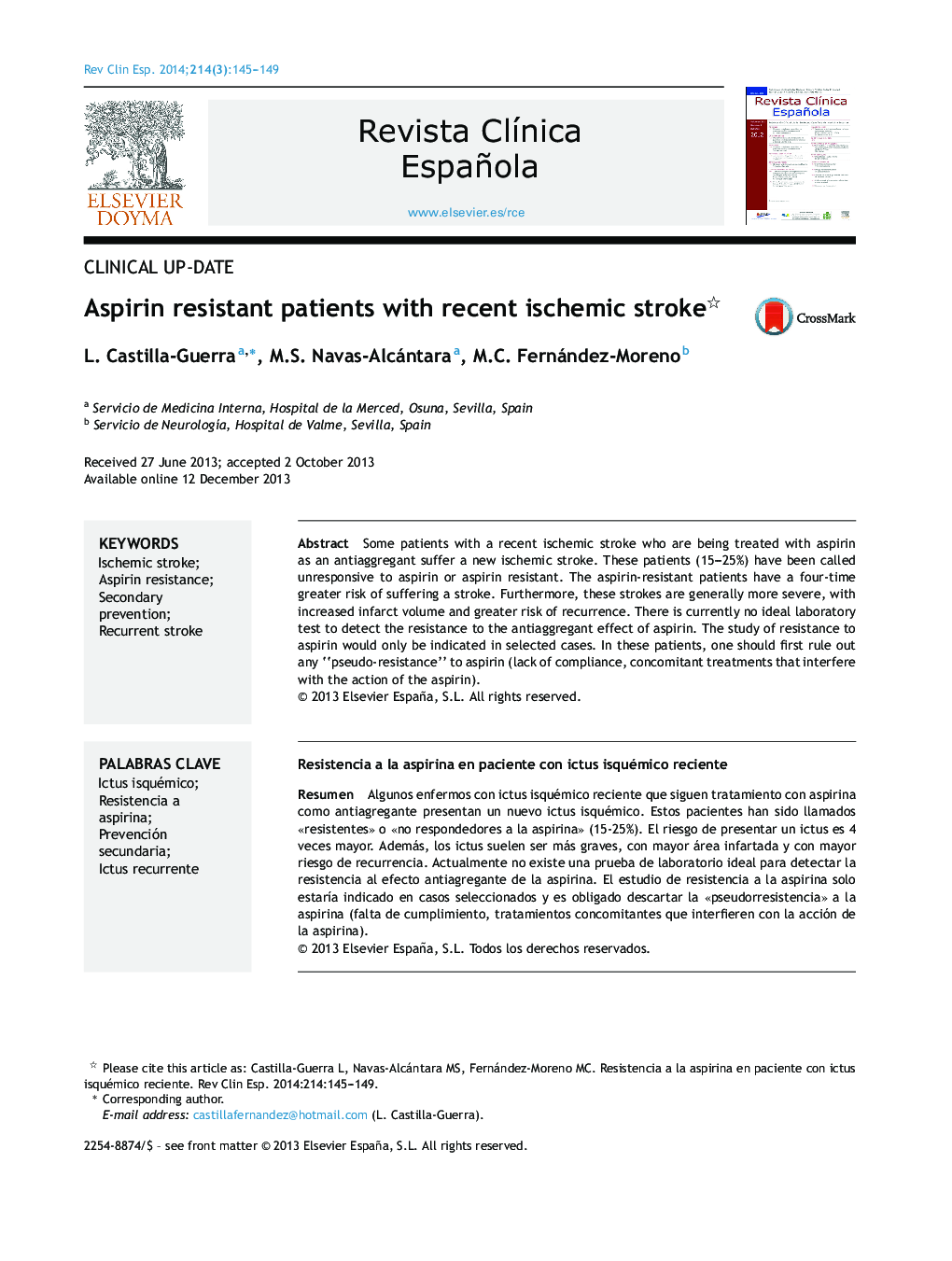| Article ID | Journal | Published Year | Pages | File Type |
|---|---|---|---|---|
| 3829628 | Revista Clínica Española (English Edition) | 2014 | 5 Pages |
Some patients with a recent ischemic stroke who are being treated with aspirin as an antiaggregant suffer a new ischemic stroke. These patients (15–25%) have been called unresponsive to aspirin or aspirin resistant. The aspirin-resistant patients have a four-time greater risk of suffering a stroke. Furthermore, these strokes are generally more severe, with increased infarct volume and greater risk of recurrence. There is currently no ideal laboratory test to detect the resistance to the antiaggregant effect of aspirin. The study of resistance to aspirin would only be indicated in selected cases. In these patients, one should first rule out any “pseudo-resistance” to aspirin (lack of compliance, concomitant treatments that interfere with the action of the aspirin).
ResumenAlgunos enfermos con ictus isquémico reciente que siguen tratamiento con aspirina como antiagregante presentan un nuevo ictus isquémico. Estos pacientes han sido llamados «resistentes» o «no respondedores a la aspirina» (15-25%). El riesgo de presentar un ictus es 4 veces mayor. Además, los ictus suelen ser más graves, con mayor área infartada y con mayor riesgo de recurrencia. Actualmente no existe una prueba de laboratorio ideal para detectar la resistencia al efecto antiagregante de la aspirina. El estudio de resistencia a la aspirina solo estaría indicado en casos seleccionados y es obligado descartar la «pseudorresistencia» a la aspirina (falta de cumplimiento, tratamientos concomitantes que interfieren con la acción de la aspirina).
